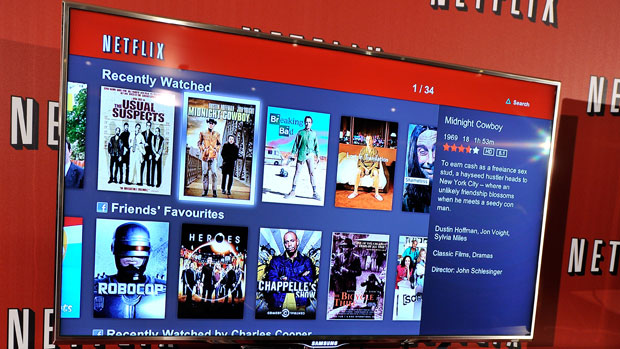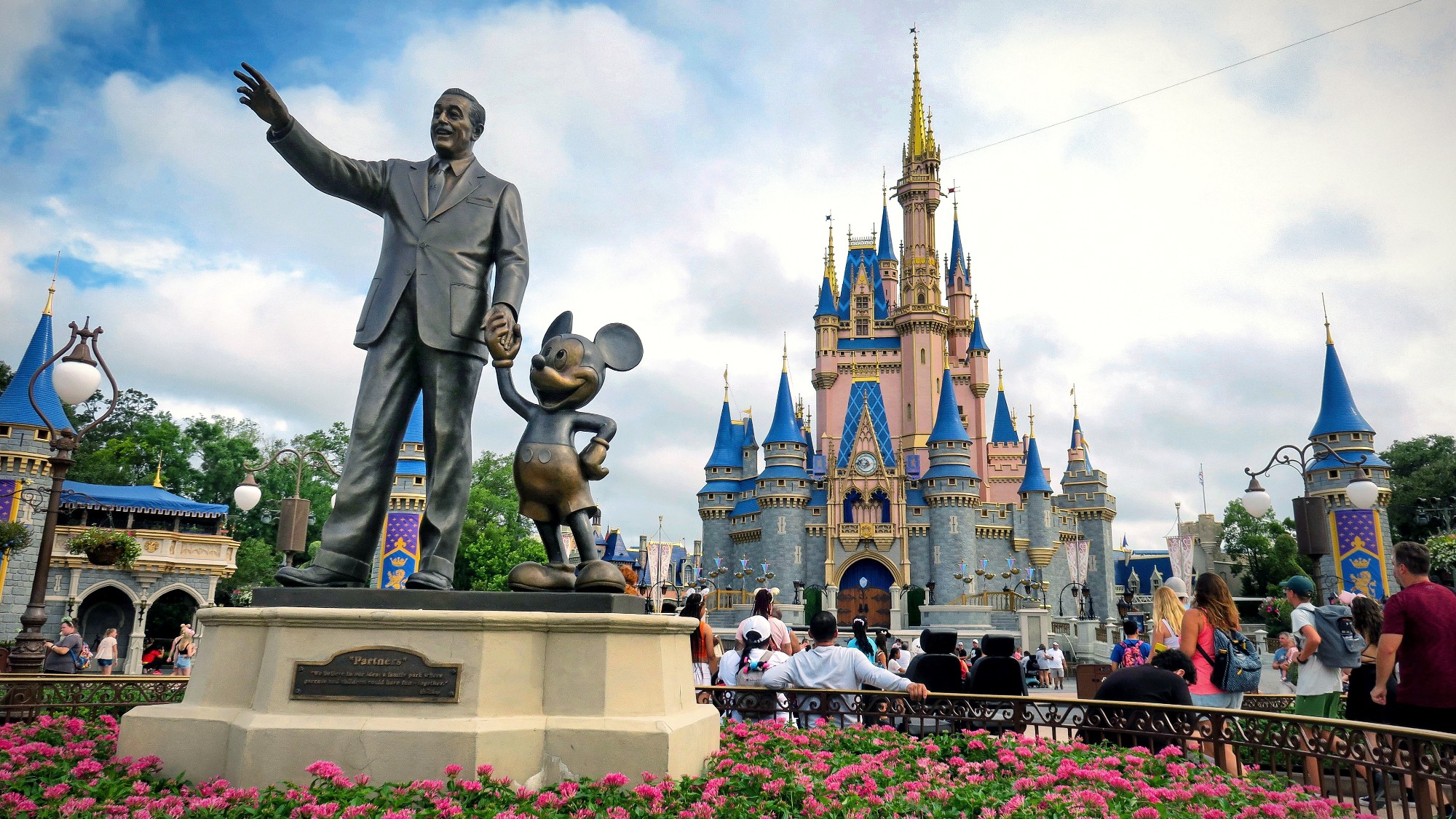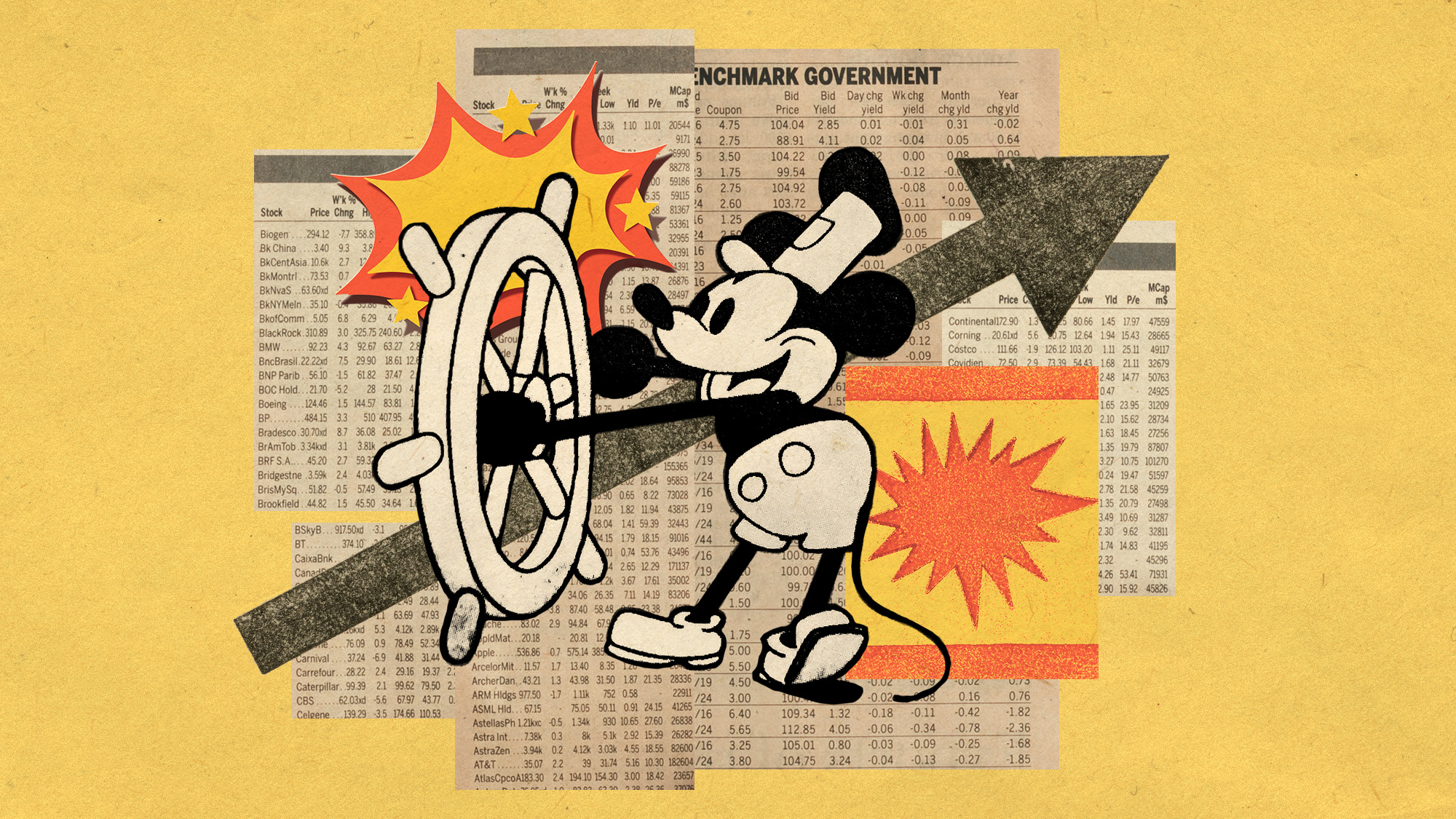Netflix tops $100bn valuation - and overtakes Goldman Sachs
In Depth: the view from inside the ‘runaway train’ streaming service challenging Disney and Amazon

A free daily email with the biggest news stories of the day – and the best features from TheWeek.com
You are now subscribed
Your newsletter sign-up was successful
Netflix’s stock market value topped $100bn (£70.5bn) for the first time this week, catapulting it above Goldmans Sachs and other masters of the financial universe.
The online media company reached a market capitalisation of $108.31bn (£76.4bn) on Monday, surpassing banking giant Goldman Sachs’s $98.11bn (£69.21bn), according to the Financial Express.
Netflix added 24 million subscribers in 2017 to reach a global total of 117.6 million, a rise driven by original programming and hit shows including Stranger Things and 13 Reasons Why.
The Week
Escape your echo chamber. Get the facts behind the news, plus analysis from multiple perspectives.

Sign up for The Week's Free Newsletters
From our morning news briefing to a weekly Good News Newsletter, get the best of The Week delivered directly to your inbox.
From our morning news briefing to a weekly Good News Newsletter, get the best of The Week delivered directly to your inbox.
The US firm’s lofty position is a far cry from 1998, when it started out as an online DVD rental service whose main competition was Blockbuster, the BBC says.
“They’re a runaway train,” Edmund Lee, managing editor of tech news website Recode, told CNBC.
The highs
Netflix’s revenues rose by 32% year-on-year to $11.7bn (£8.25bn) in 2017, while net income tripled to $559m (£394.3m). The company’s fourth-quarter revenue of $3.29bn (£2.32bn), up almost 33% from the same period in 2016, was in line with Wall Street’s expectations, Fortune says.
A free daily email with the biggest news stories of the day – and the best features from TheWeek.com
Netflix bosses plans to spend $8bn (£5.64bn) on programming in 2018, and a further $2bn (£1.41bn) on marketing. They are also being joined by a new director, Rodolphe Belmer, the former CEO of Canal Plus Group, who is known for his focus on thought-provoking content, says Variety.
Netflix’s success has prompted Facebook, Apple and Amazon to try original programming, and is believed to have contributed to Disney’s decision to bid for Fox assets.
And the lows
Despite the plaudits, there are some areas of concern about Netflix: not least its negative cash flow.
“Netflix is now forecasting a free cash flow between negative $3bn and negative $4bn in 2018, after ending last year at negative $2bn,” Fortune says.
Critical analysts wonder when spending will level off.
“The company has stayed around break-even for most of its existence, but continues to need cash because of lavish spending on programming,” Bloomberg says.
Netflix wrote off $39m in the fourth quarter of 2017, for example, for unreleased programming including two House of Cards episodes that will not air due to the sexual harassment scandal around Kevin Spacey, the Financial Times reports.
What the future holds
Competition, too, is increasing.
“Disney is planning to launch new subscription streaming services starting later this year, and Hulu, the US internet video service that is jointly owned by Disney, Fox and Comcast, grew to 17 million subscribers last year,” the FT says.
So will Netflix resort to running adverts on its shows to please shareholders and boost profits? In short, no.
“It is a core differentiator and again we’re having great success on the commercial-free path,” Netflix chief executive Reed Hastings told journalists during a conference call, CNBC reports.
Netfix is growing at a record pace, adds The Motley Fool.
“Based on this round of results and Netflix’s first-quarter forecast, 2018 is set to be another blowout year,” the personal finance website says.
-
 James Van Der Beek obituary: fresh-faced Dawson’s Creek star
James Van Der Beek obituary: fresh-faced Dawson’s Creek starIn The Spotlight Van Der Beek fronted one of the most successful teen dramas of the 90s – but his Dawson fame proved a double-edged sword
-
 Is Andrew’s arrest the end for the monarchy?
Is Andrew’s arrest the end for the monarchy?Today's Big Question The King has distanced the Royal Family from his disgraced brother but a ‘fit of revolutionary disgust’ could still wipe them out
-
 Quiz of The Week: 14 – 20 February
Quiz of The Week: 14 – 20 FebruaryQuiz Have you been paying attention to The Week’s news?
-
 Lucasfilm passes ‘Star Wars’ torch to new leaders
Lucasfilm passes ‘Star Wars’ torch to new leadersSpeed Read Kathleen Kennedy is stepping down after 14 years at the company
-
 How will the Warner Bros. bidding war affect the entertainment industry?
How will the Warner Bros. bidding war affect the entertainment industry?Today’s Big Question Both Netflix and Paramount are trying to purchase the company
-
 NFL gets ESPN stake in deal with Disney
NFL gets ESPN stake in deal with DisneySpeed Read The deal gives the NFL a 10% stake in Disney's ESPN sports empire and gives ESPN ownership of NFL Network
-
 Are streaming bundles reinventing cable TV?
Are streaming bundles reinventing cable TV?Today's Big Question The old-fashioned convenience of one service, one fee
-
 Disney board fends off Peltz infiltration bid
Disney board fends off Peltz infiltration bidSpeed Read Disney CEO Bob Iger has defeated activist investor Nelson Peltz in a contentious proxy battle
-
 Disney and DeSantis reach detente
Disney and DeSantis reach detenteSpeed Read The Florida governor and Disney settle a yearslong litigation over control of the tourism district
-
 Disney is engaged in a proxy battle against activist investors
Disney is engaged in a proxy battle against activist investorsUnder the Radar Members of the Disney family are backing the company's leadership in the fight
-
 Elon Musk to X's fleeing advertisers: 'Go f--- yourself' and 'don't advertise'
Elon Musk to X's fleeing advertisers: 'Go f--- yourself' and 'don't advertise'Speed Read 'What this advertising boycott is going to do is to kill the company,' Musk said at a public conference